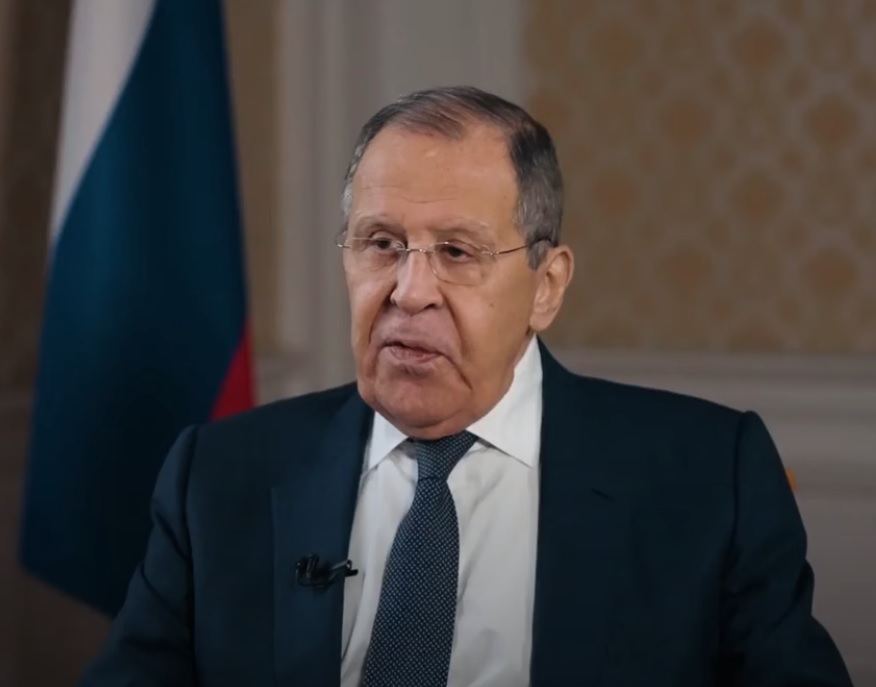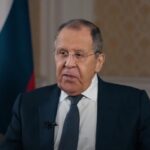Having conducted an interview with Russia’s President Vladimir Putin, Tucker Carlson has done recently the same with Russian foreign minister Sergei Lavrov. In this eighty-minute talk the interlocutors covered all the current political problems, focusing on Ukraine. Minister Sergei Lavrov enumerated major events leading up to the current war, facts that the Western man in the street is either ignorant of because the Western media choose not to present them, or facts that the Western man in the street is familiar with, but has been provided with an entirely different interpretation. We are not going to repeat all the points that were mentioned during the Carlson-Lavrov talk. What we are going to do is to call the reader’s attention to the following passage from the interview.
Tucker Carlson asked Sergei Lavrov about conditions the fulfilment of which would induce Russia to discontinue the military operation. The Russian foreign minister repeated the three principal demands:
[1] Ukraine must not be a member of NATO or indeed of any alliance nor even be allowed to conduct military exercises on its territory with the participation of foreign troops;
[2] the territorial changes must be accepted: that is, not only the incorporation of Crimea into Russia, but also the fact that the regions of Donetsk, Luhansk, Zaporozhye, and Kherson have now constitutionally become parts of Russia by the will of the people living there;
[3] the basic human rights as they are stipulated in the UN Charter about freedom of religious belief, preservation of the native language (in this case Russian) and the like must be abided by in Ukraine.
As Minister Lavrov finished the enumeration of Russia’s demands, Tucker Carlson – probably thinking that Sergei Lavrov forgot about one more point – asked whether Russia wouldn’t like to have the sanctions lifted. To this, Sergei Lavrov replied that sanctions were of little or no importance to Russia because
[1] Russia has learnt to live with them;
[2] Russia has become stronger because of them; and because
[3] Russia has learnt that autarky (economic self-sufficiency) is the best guarantor of independence.
This really should not come as a surprise to anyone. Iran, which is a much smaller country than Russia, has lived under sanctions for over forty years now; Cuba, a very small country, has coped with sanctions for a much longer period. Both these countries continue to survive and to challenge the United States. Russia has all the natural resources that an economy needs, and Russia has really learnt to rely on itself, or – to be more precise – Russia has learnt not to rely on the West, and not to trust the West, which was also what Minister Lavrov said.





